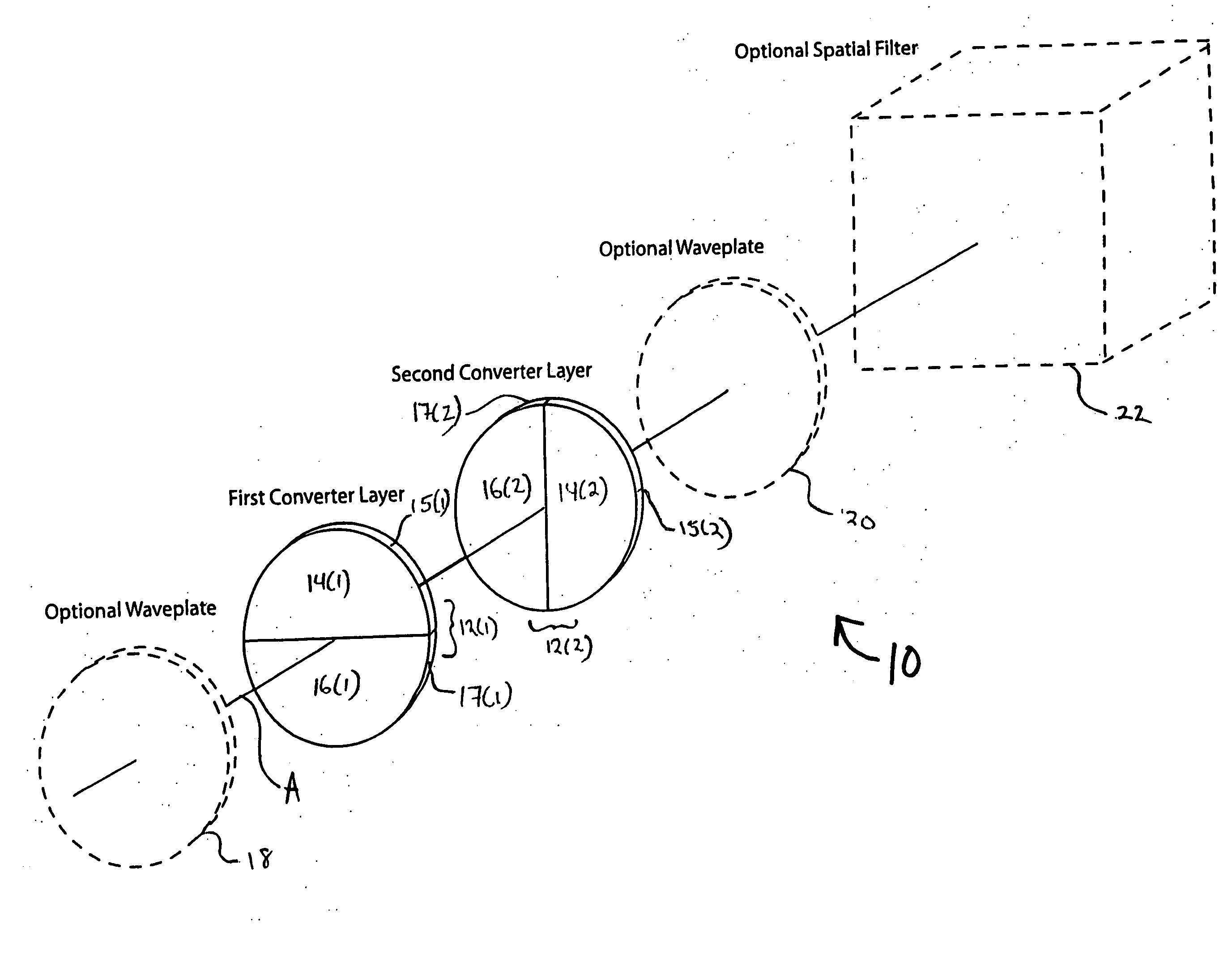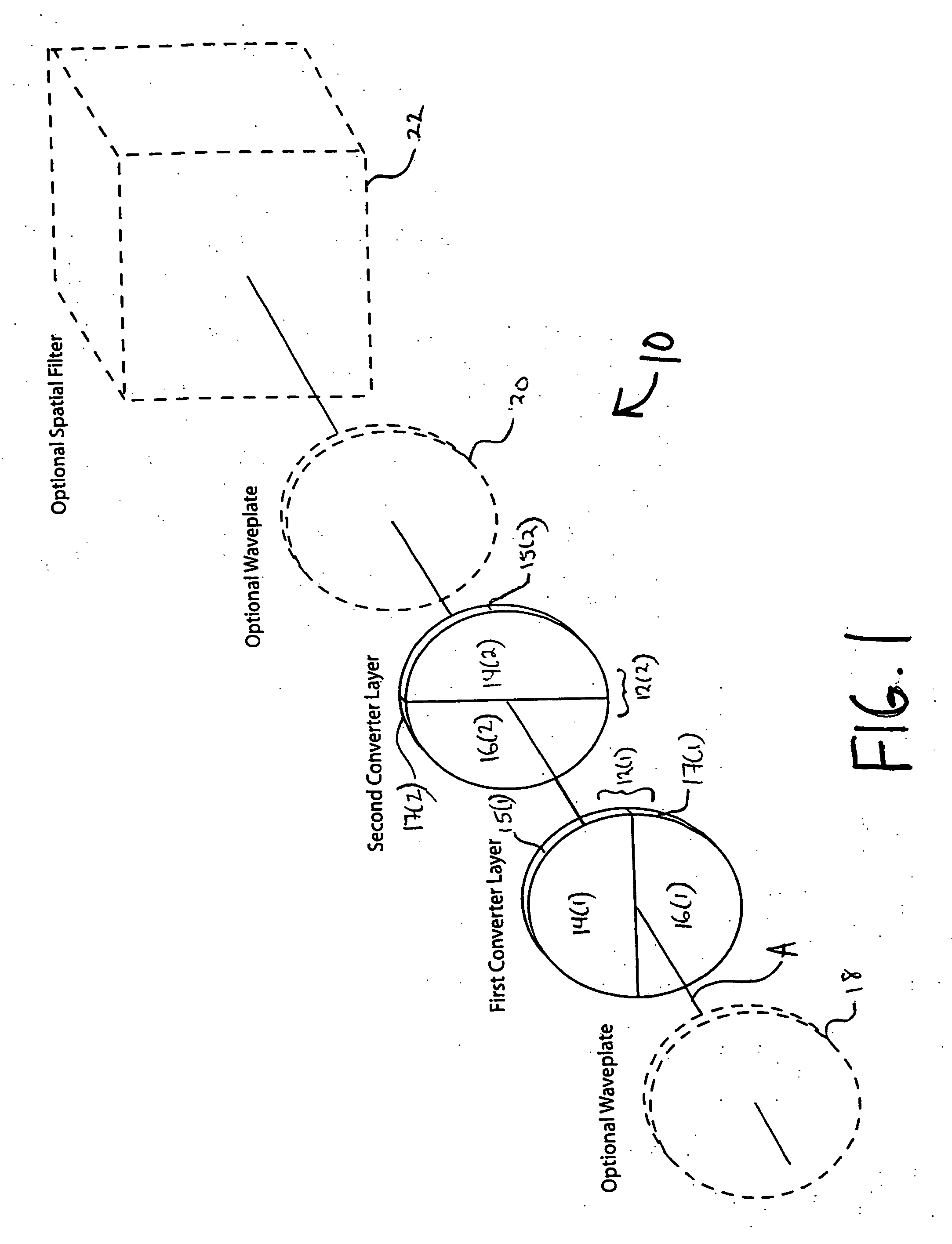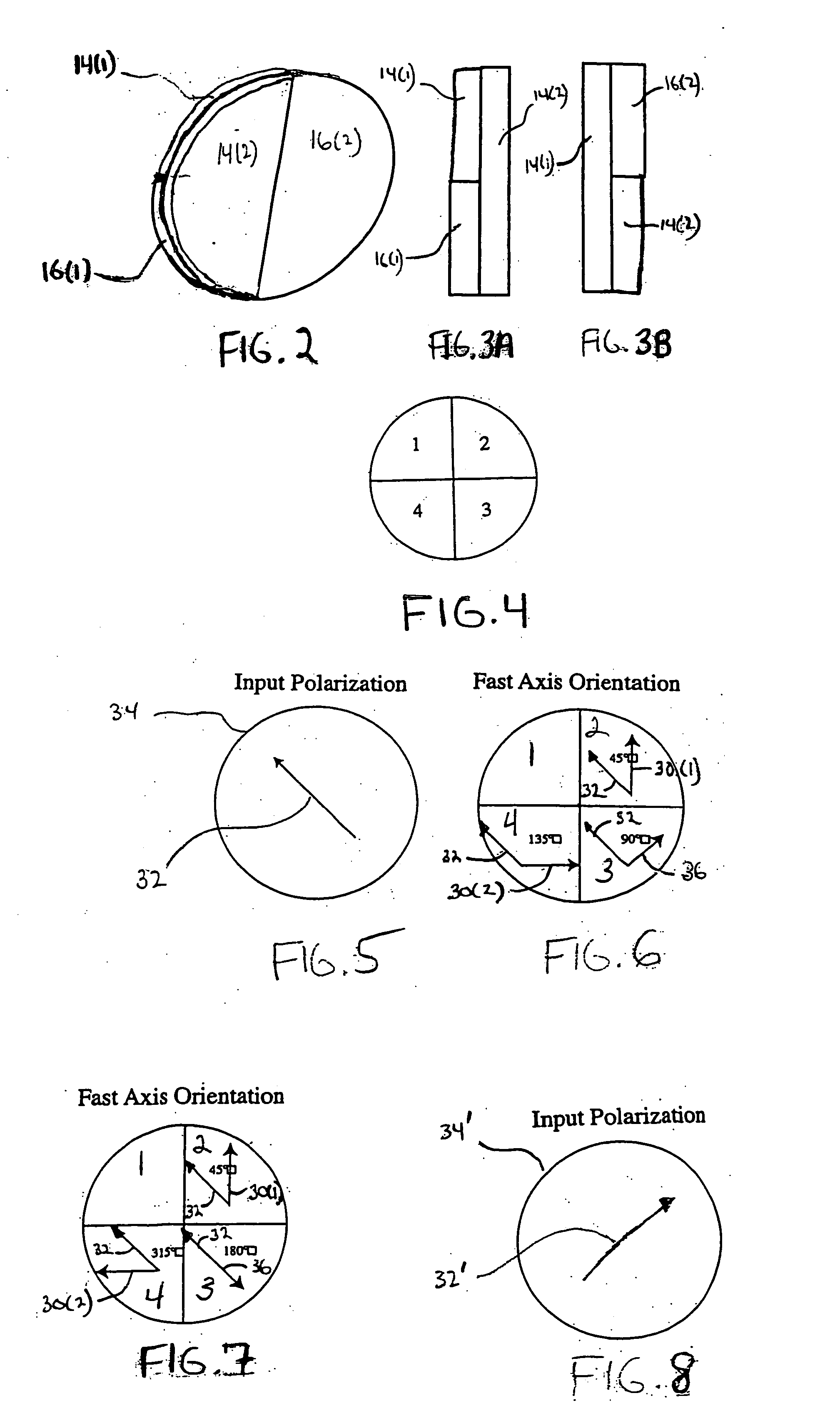System and method converting the polarization state of an optical beam into an inhomogeneously polarized state
a technology of polarization state and optical beam, which is applied in the field of polarization converters, can solve the problems of optical beams or light, inhomogeneous polarized light that has not been considered for many applications, and the drift of mach-zehnder and twyman green/michelson interferometers, etc., and achieves the effect of cheap and robustness
- Summary
- Abstract
- Description
- Claims
- Application Information
AI Technical Summary
Benefits of technology
Problems solved by technology
Method used
Image
Examples
Embodiment Construction
[0039] As described above, the invention provides a system for converting the polarization state of an optical beam from an initial polarization state into an inhomogeneous polarization state, such that an optical input beam is converted into an output beam having a smoothed polarization state which varies spatially and in a continuous manner. In this manner, the invention can provide an illumination source with a polarization state which varies spatially and in a continuous manner at the pupil of an optical system. This smoothing may be accomplished, for example, by a pinhole spatial filter, an iris placed at a distant point, or by coupling into an optical fiber or similar waveguide.
[0040] Also, the invention relates to a “common path Mach-Zehnder cylindrical-vector beam converter.” What is meant by “common path” is that individual optical beam polarizations traverse the same paths in space. The term “Mach-Zehnder” means a single-pass interferometer. Further, the term “inhomogeneo...
PUM
 Login to View More
Login to View More Abstract
Description
Claims
Application Information
 Login to View More
Login to View More - R&D
- Intellectual Property
- Life Sciences
- Materials
- Tech Scout
- Unparalleled Data Quality
- Higher Quality Content
- 60% Fewer Hallucinations
Browse by: Latest US Patents, China's latest patents, Technical Efficacy Thesaurus, Application Domain, Technology Topic, Popular Technical Reports.
© 2025 PatSnap. All rights reserved.Legal|Privacy policy|Modern Slavery Act Transparency Statement|Sitemap|About US| Contact US: help@patsnap.com



